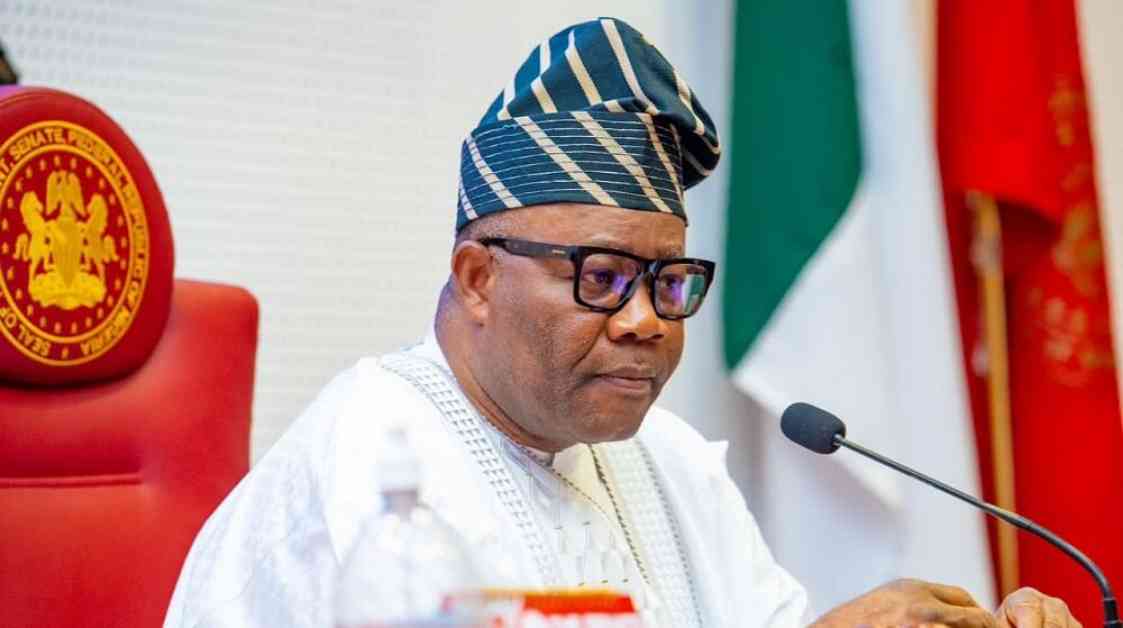CJN Urged to Take Action Against Lawyers for Public Criticism
The Senate President, Godswill Akpabio, has called on the new Chief Justice of Nigeria (CJN) to penalize senior lawyers who frequently appear on television to criticize the nation’s judiciary system or comment on ongoing court cases. This plea was made during the screening of Mrs. Kekere-Ekun before the senators on Wednesday.
Mr. Akpabio did not specifically name any senior lawyers, but individuals like human rights lawyers Femi Falana, Inibehe Effiong, Liborous Oshoma, and Frank Tietie are known for discussing judicial issues on programs like Politics Today on Channels TV.
According to the Senate President, the public commentary by senior lawyers on pending cases can influence the outcome and potentially lead to injustice. He emphasized the need for the CJN to establish a procedure to hold these lawyers accountable for their actions.
Impact on Junior Lawyers
A concerning trend highlighted by Mr. Akpabio is that junior lawyers are starting to emulate the behavior of senior lawyers by engaging in public discussions on judicial matters. This imitation of senior lawyers’ actions could perpetuate the cycle of influencing court cases through external commentary rather than presenting arguments within the courtroom.
The Senate President stressed the importance of deterring such behavior to uphold the integrity of the judiciary system and prevent undue influence on legal proceedings. By taking decisive action against senior lawyers who engage in public commentary, the CJN can set a precedent that discourages such practices among legal professionals, both experienced and novice.
Discipline and Integrity in the Legal Profession
Describing the conduct of senior lawyers as indiscipline, Mr. Akpabio underscored the necessity for the CJN to enforce discipline within the legal profession. By collaborating with relevant agencies, the judiciary can ensure that matters under judicial review are not discussed in public forums, including television, newspapers, social media, or radio.
Mrs. Kekere-Ekun, in response to the Senate President’s concerns, emphasized that continued public commentary by senior lawyers could result in the loss of their ranks within the legal community. She reiterated the importance of maintaining decorum and respecting the confidentiality of ongoing legal cases to preserve the integrity of the judicial process.
The CJN affirmed that the judiciary possesses the constitutional authority to address instances where senior lawyers breach the boundaries of professional conduct by discussing subjudice matters in public. By leveraging its powers, the judiciary can safeguard the sanctity of legal proceedings and prevent external influences from compromising the administration of justice.
Commitment to Upholding Judicial Standards
In concluding the discussion, Mrs. Kekere-Ekun expressed her commitment to upholding judicial standards and ensuring that the courts operate with integrity and impartiality. She reassured the Senate that judges are guided by their oath of office and will not be swayed by external factors, including social media commentary, in delivering fair and just judgments.
Following her confirmation by the Senate, Mrs. Kekere-Ekun’s remarks underscore the judiciary’s dedication to maintaining professionalism and ethical standards within the legal profession. By holding senior lawyers accountable for their public criticism and commentary, the CJN can reinforce the principles of discipline, integrity, and impartiality that are essential for a robust and trustworthy judiciary system.

